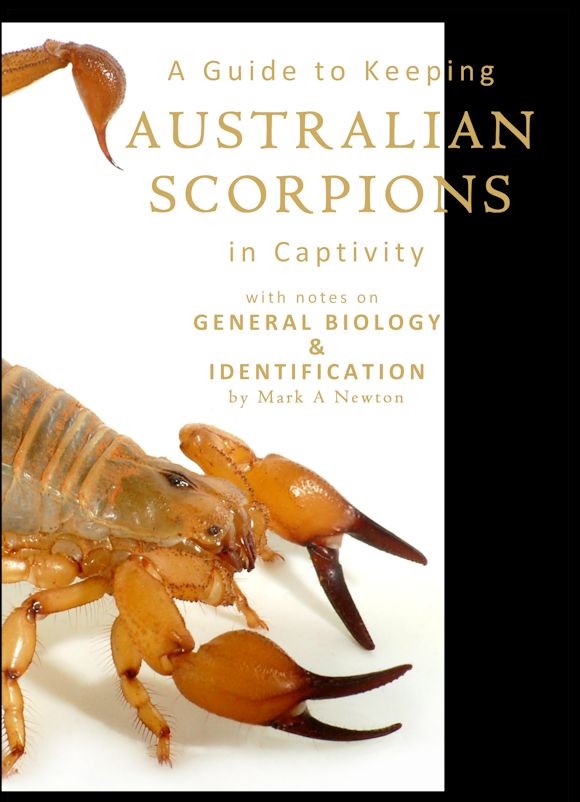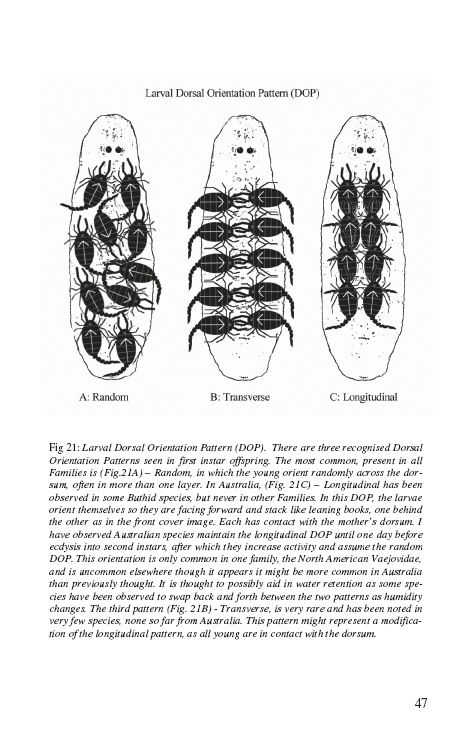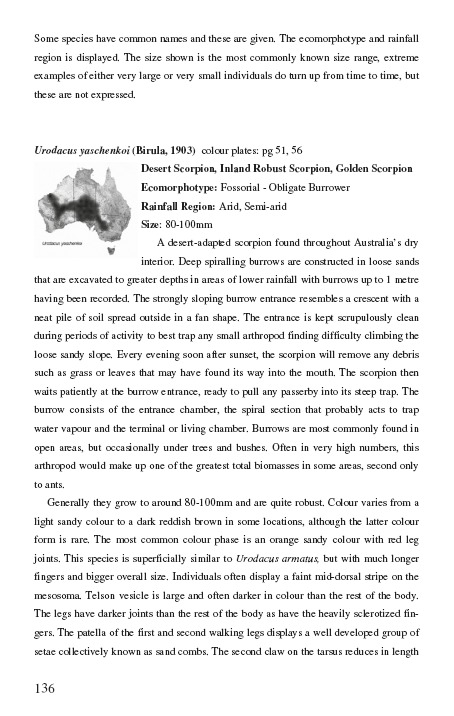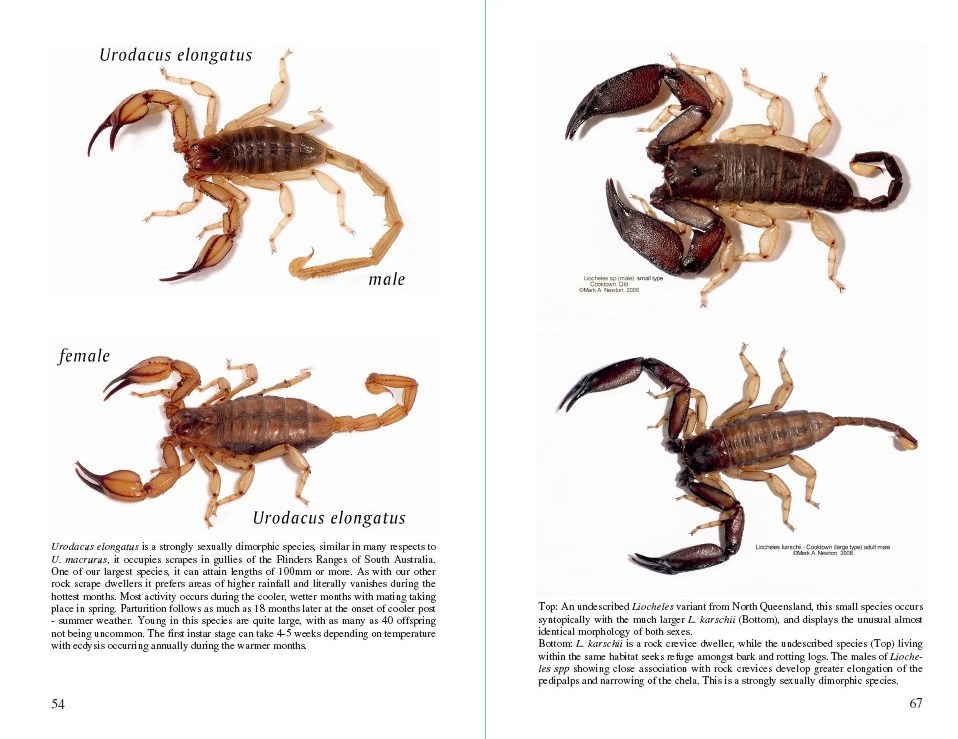
Specifications:
Size A5, Pages=186, 20 colour plate pages, all gloss finish-inside and out,
numerous diagrams, figures, distribution maps and tables.
First published 2008
2nd printing
2012 (cover change)
author Mark A. Newton BSc
RRP AUD $49.95
price is plus freight
$7.50 Australian addresses
$15.00 International addresses
Diagrams showing anatomy and morphology are found right throughout the book

Specialised sensory organs and appendages are explained

Dorsal Larval Orientation Patterns are explained as are many unique behaviours displayed by scorpions

 NOW AVAILABLE
NOW AVAILABLE
 ORDER HERE
ORDER HERE
A Guide to Keeping
SCORPIONS
in Captivity with notes on
General Biology and Identificationby Mark A. Newton
The Evolution of this book:-
A note from the author.
This book started out with the intention of being a short simple guide to keeping Australian Scorpions as it was apparent nothing in print was available to help those specifically interested in the husbandry of Australian scorpions. One of the main reasons people wished to keep scorpions stemmed from an interest in their amazing biology, and so it seemed imperative the keeper would want to know more about aspects of life history, diversity, species and more and so this book developed into far more than was originally planned. And I'm glad it did. The reader will derive a lot more knowledge from this text than a basic keeping guide. To be the best keeper of scorpions and really enjoy the hobby it pays to know as much as possible of the biology.
This book covers many angles while concentrating on Keeping as the overall basis. Understanding an animals biology and ecology is the foundation to knowing how to keep it in captivity and so where possible I relate aspects of life history, physiology and ecology to help in establishing the best forms of housing including environmental physical parameters such as temperature, humidity and substrate types.
A book of this type would be a little short of complete if it did not include a section on known species, their approximate distributions and general description, and so I have included information on all our presently recognised species with references also made to prior species now synonomised.
Problems such as taxonomy and species descriptions are addressed along with more fun stuff such as what to take on a collecting trip, what things you might need to study scorpions if thats your interest - it's not all science of course.
A Quick Reference section has keeping parameter tables for the best types of setup for scorpions from all habitats. A FAQ section summarises answers to the most common questions.
This book is a MUST HAVE for anyone contemplating or
already keeping Scorpions, from absolute beginners to seasoned veterans it will be the best investment you ever make. ..... and its the FIRST and ONLY ONE of its kind, so DONT MISS IT!!! Back by Popular Demand. World Wide BEST Seller in
the world of Scorpion Husbandry Now in its 2nd printing!!! 2012
Take Care and enjoy the book
Mark 

Owner: the Spiral Burrow - Worlds most informative site on the Scorpions of Australia
www.thedailylink.com/thespiralburrow
Conservation and Commercial Collecting - Laws
Scorpion Collecting Trips
The use of a Microscope in Keeping and Studying Scorpions
Scales for Health Checks
Killing and Preservation
Keeping Scorpions in Captivity
The Acquisition, Species and Variation
Morphological Characteristics
Housing
Heating and Lighting
Substrate
Obligate Burrowers, Osmosis and Matric Tension
Fossorial Obligate Burrowers – Urodacus
Semi – Fossorial Rock Dwelling Obligate Burrowers
- Urodacus and Bothriurids
Foraging Opportunistic Scorpions - Buthids and Bothriurids
Rock Crack Dwellers - Liocheles
Communalism and Cannibalism
Housing Maintenance
Feeding
Breeding
Age and Sex Determination
Sexing: Quick Reference and General Guide
The Sexual Sting
Promenade–a–Deux and Spermatophore Deposition
Parturition (Birthing)
Ecdysis
Raising Juvenile Instars
Mites and Mycosis
Grow Your Own Crickets
Species are described and discussed along with distribution maps and keeping information

